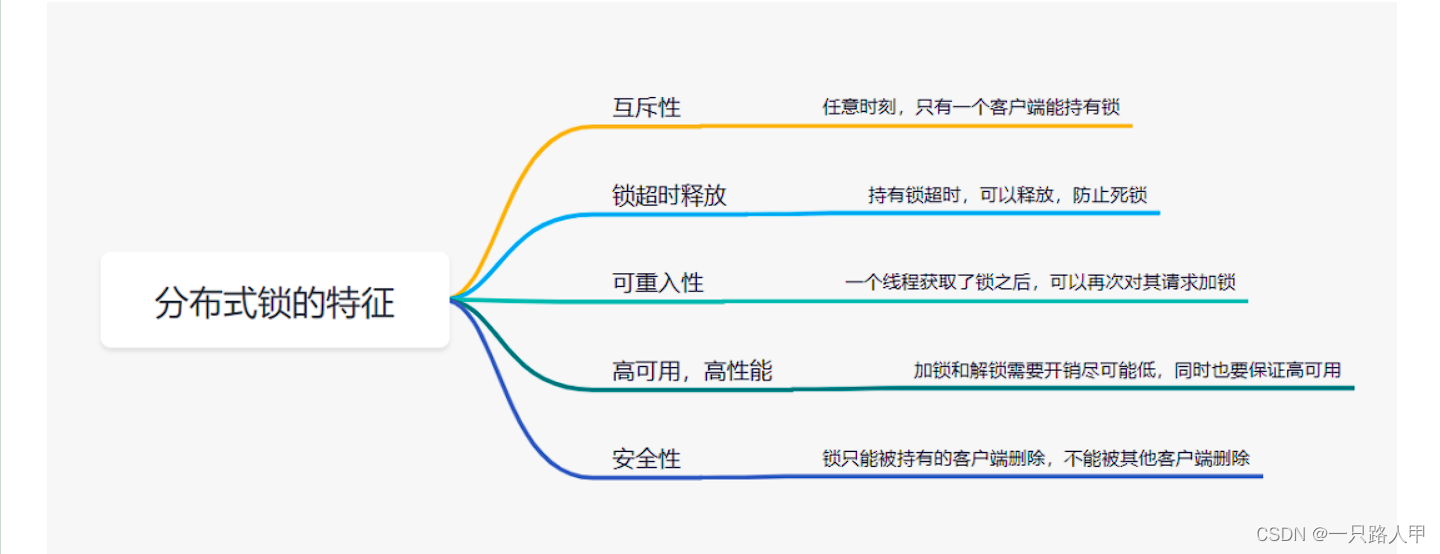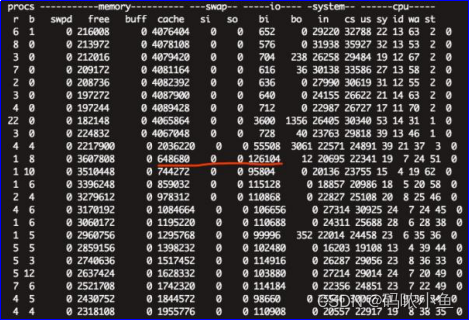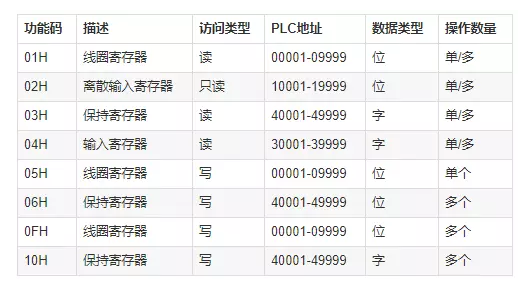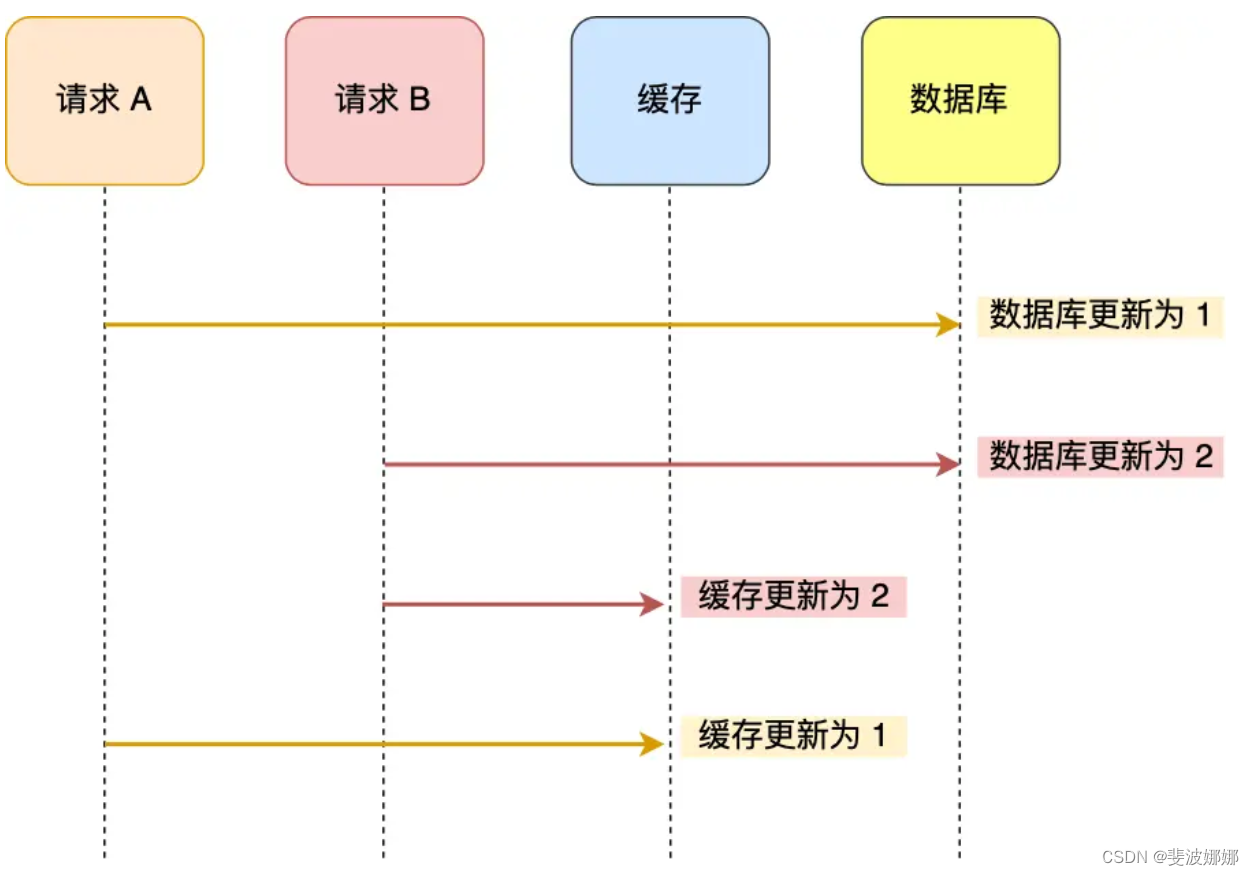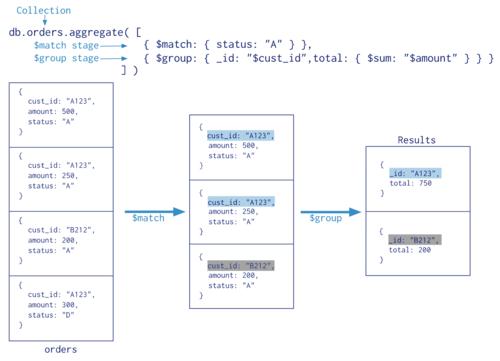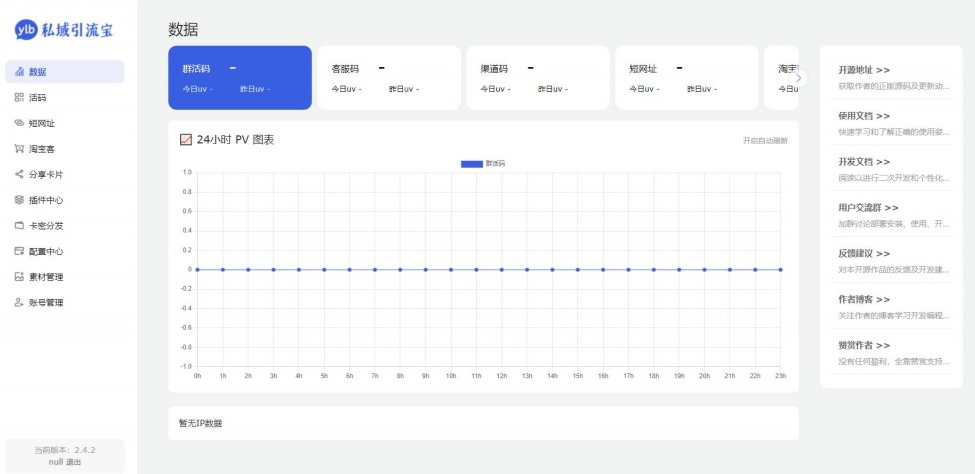文章目录
- 1.移除链表元素
- 方法1:
- 方法2
- 2.合并两个有序链表
- 3.链表的中间节点
- 方法1
- 方法2
- 4.反转单链表
- 方法1
- 方法2
- 5.分割链表
- 6.链表中的倒数第k个节点
- 方法1:
- 方法2:
- 7.环形链表的约瑟夫问题
- 8.链表的回文结构
- 9.相交链表
- 方法1
- 方法2:
- 10.环形链表
- 11.环形链表Ⅱ
- 12.随机链表的复制

链表学习完以后,来做点相关题目吧
1.移除链表元素
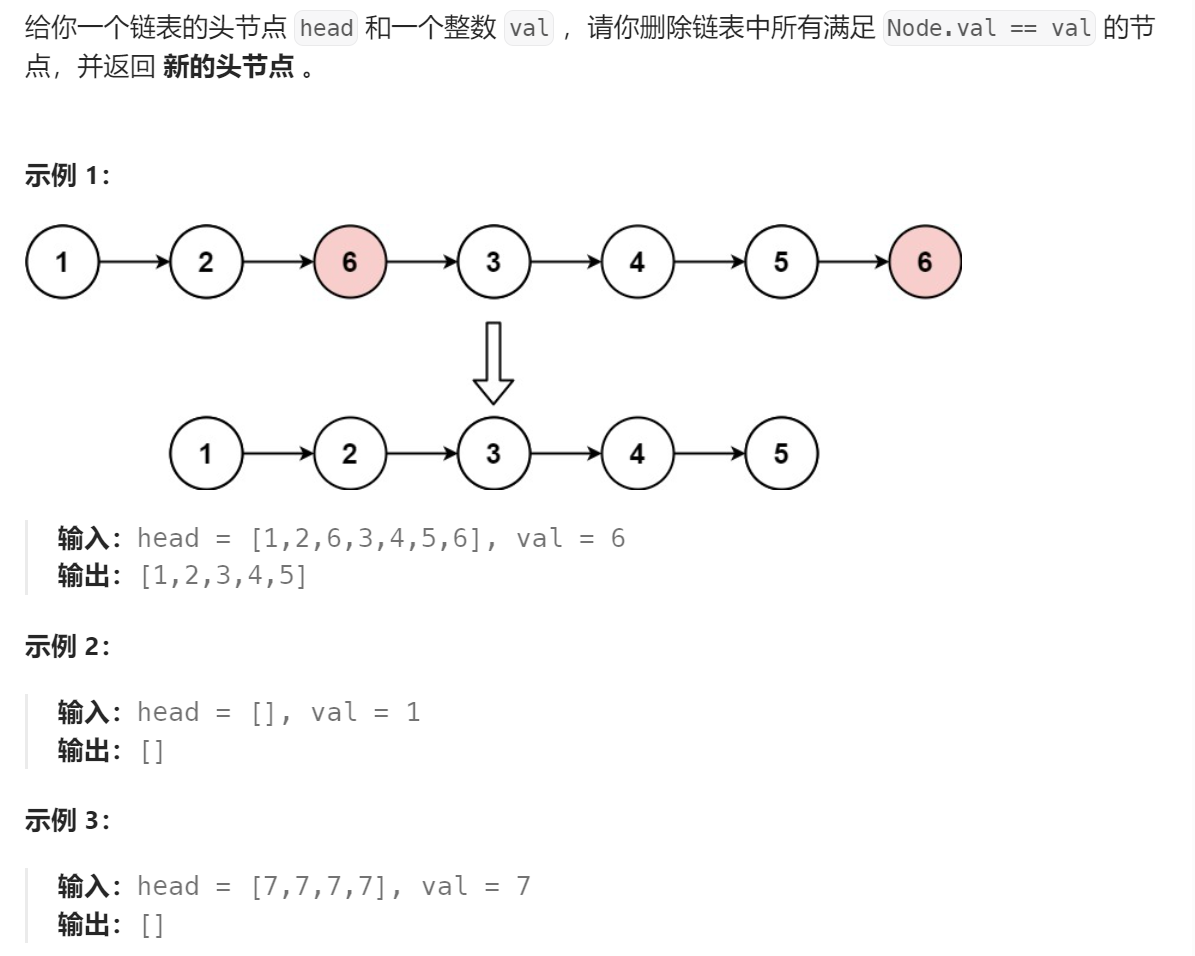
方法1:
在原链表的基础上直接删除指定元素
- 若当前节点是要删除的节点,则将其前驱节点指向当前节点的下一个节点
- 若当前节点不是要删除的节点,前驱节点指向当前节点,当前节点后移
- 特殊情况:
- 循环判断,若头节点是要删除的节点,则将头节点后移
- 头节点不为空
struct ListNode* removeElements(struct ListNode* head, int val) { struct ListNode* cur = head; struct ListNode* prev = head; //判断头节点 while(head && head->val == val) { head = head->next; } //链表为空 if(head == NULL) { return NULL; } //正常情况 while(cur) { if(cur->val == val) { prev->next = cur->next; } else { prev = cur; } cur = cur->next; } return head; }方法2
创建一个新的链表存放未删除的元素
- 先创建一个虚拟的头节点,指向新链表,同时记录该链表的尾
- 若当前节点是要删除的元素,直接后移
- 若当前节点不是要删除的元素,连接到新链表的尾后
- 将新链表尾节点的next置为空(断开与原链表的连接)
struct ListNode* removeElements(struct ListNode* head, int val) { //设置新链表的头 struct ListNode* newhead = (struct ListNode*)malloc(sizeof(struct ListNode)); newhead->val = -1; newhead->next = NULL; struct ListNode* cur = head; struct ListNode* tail = newhead; while(cur) { if(cur->val == val) { cur = cur->next; } else { tail->next = cur; tail = tail->next; cur = cur->next; } } //将新链表与原链表断开 tail->next = NULL; struct ListNode* ret = newhead->next; free(newhead); newhead = tail = NULL; return ret; }2.合并两个有序链表
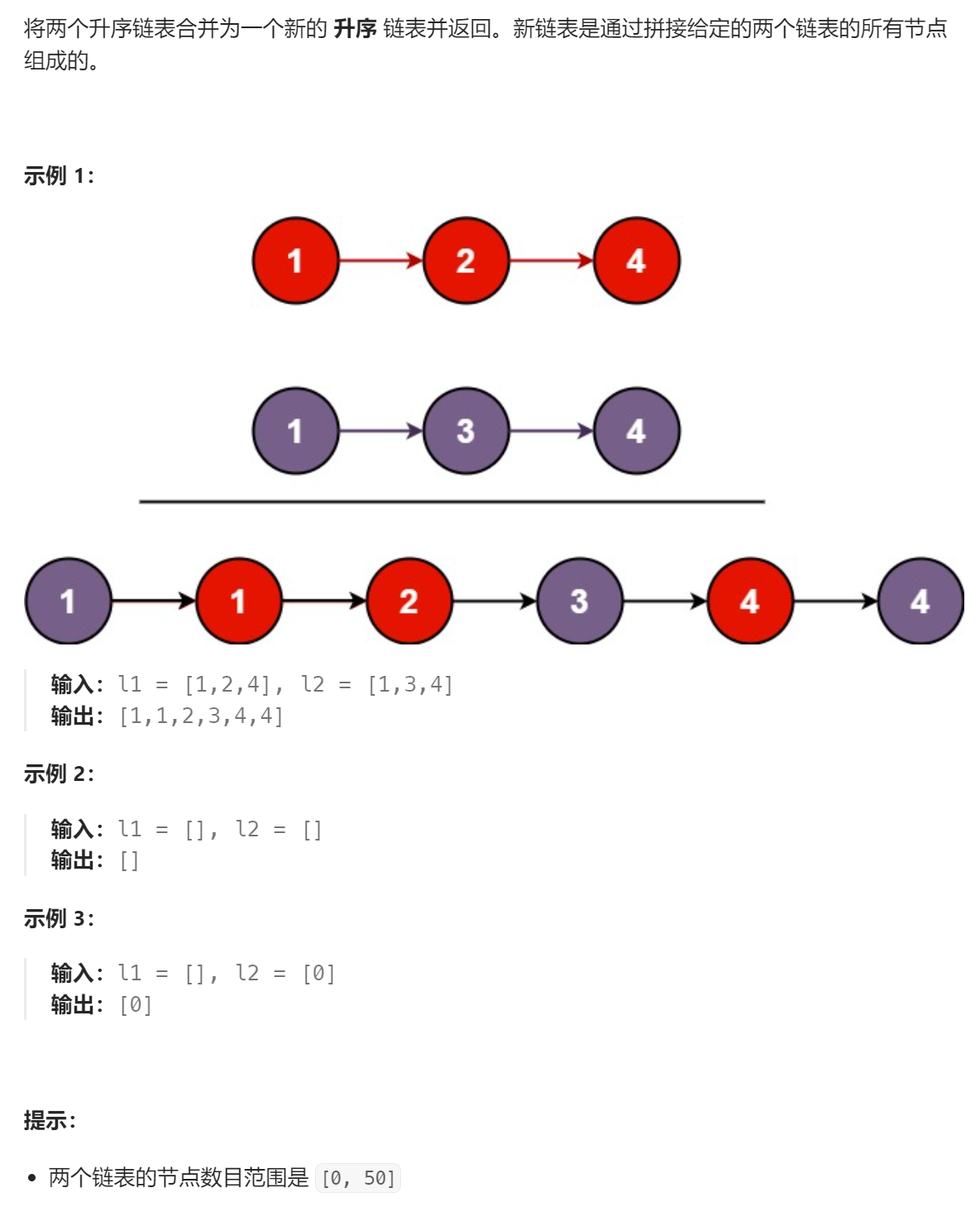
创建一个新的链表
- 两个指针分别指向两个链表
- 将两指针所指向的元素的较小值连接到新链表的尾
- 若有一个指针走到空,则将另一个指针连接到新链表的尾
struct ListNode* mergeTwoLists(struct ListNode* list1, struct ListNode* list2) { //定义新链表的头 struct ListNode* newhead = (struct ListNode*)malloc(sizeof(struct ListNode)); newhead->val = -1; newhead->next = NULL; struct ListNode* tail = newhead; //比较链表元素 while(list1 && list2) { if(list1->val val) { tail->next = list1; tail = tail->next; list1 = list1->next; } else { tail->next = list2; tail = tail->next; list2 = list2->next; } } //若有一个链表为空,则连接另一个 if(list1) { tail->next = list1; } else { tail->next = list2; } struct ListNode* ret = newhead->next; free(newhead); newhead = tail = NULL; return ret; }3.链表的中间节点
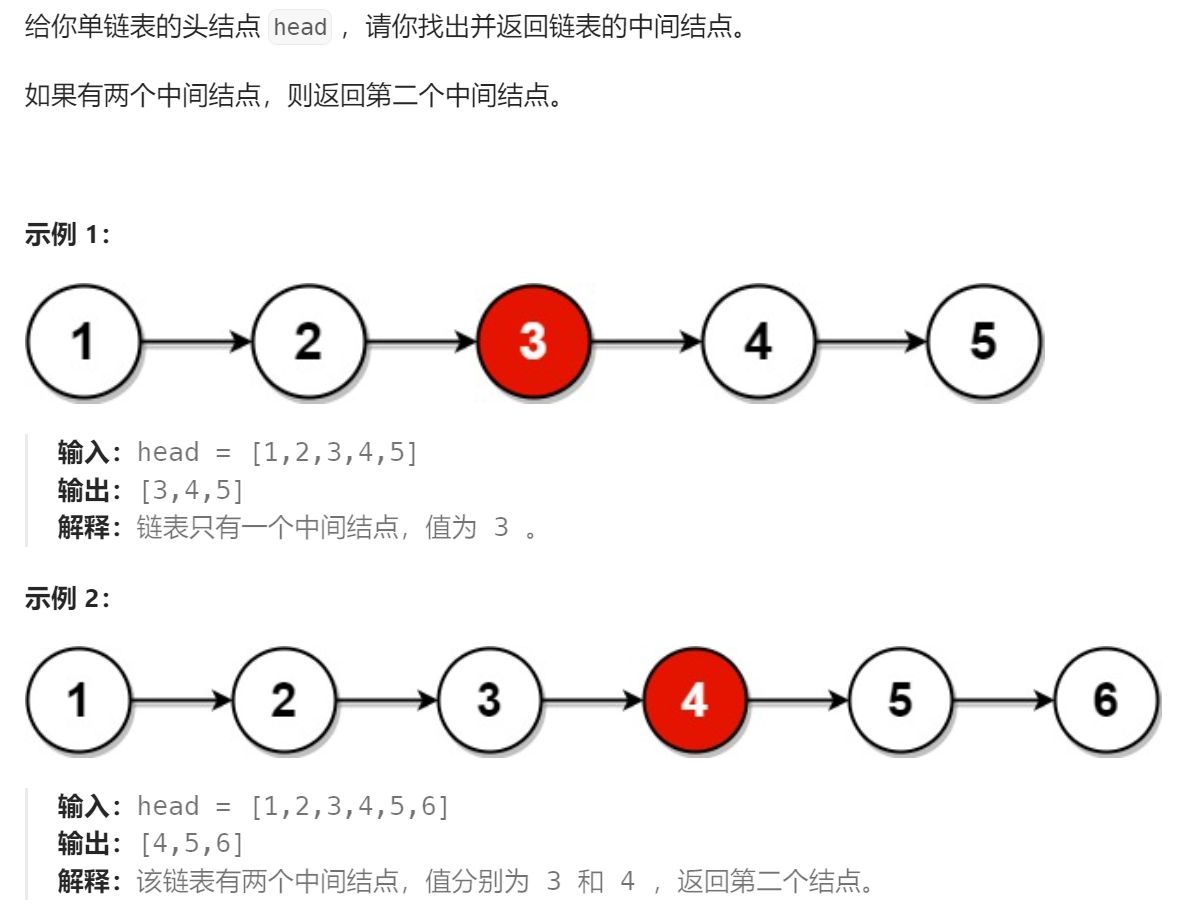
方法1
统计链表长度,计算出中间位置;再寻找中间位置
struct ListNode* middleNode(struct ListNode* head) { struct ListNode* cur = head; int len = 0; while(cur) { len++; cur = cur->next; } int count = 0; cur = head; while(count next; } return cur; }方法2
快慢指针法:一个指针一次走一步,一个指针一次走两步。当快指针尾空或者快指针的next为空,那么慢指针所指向的元素就是中间元素。
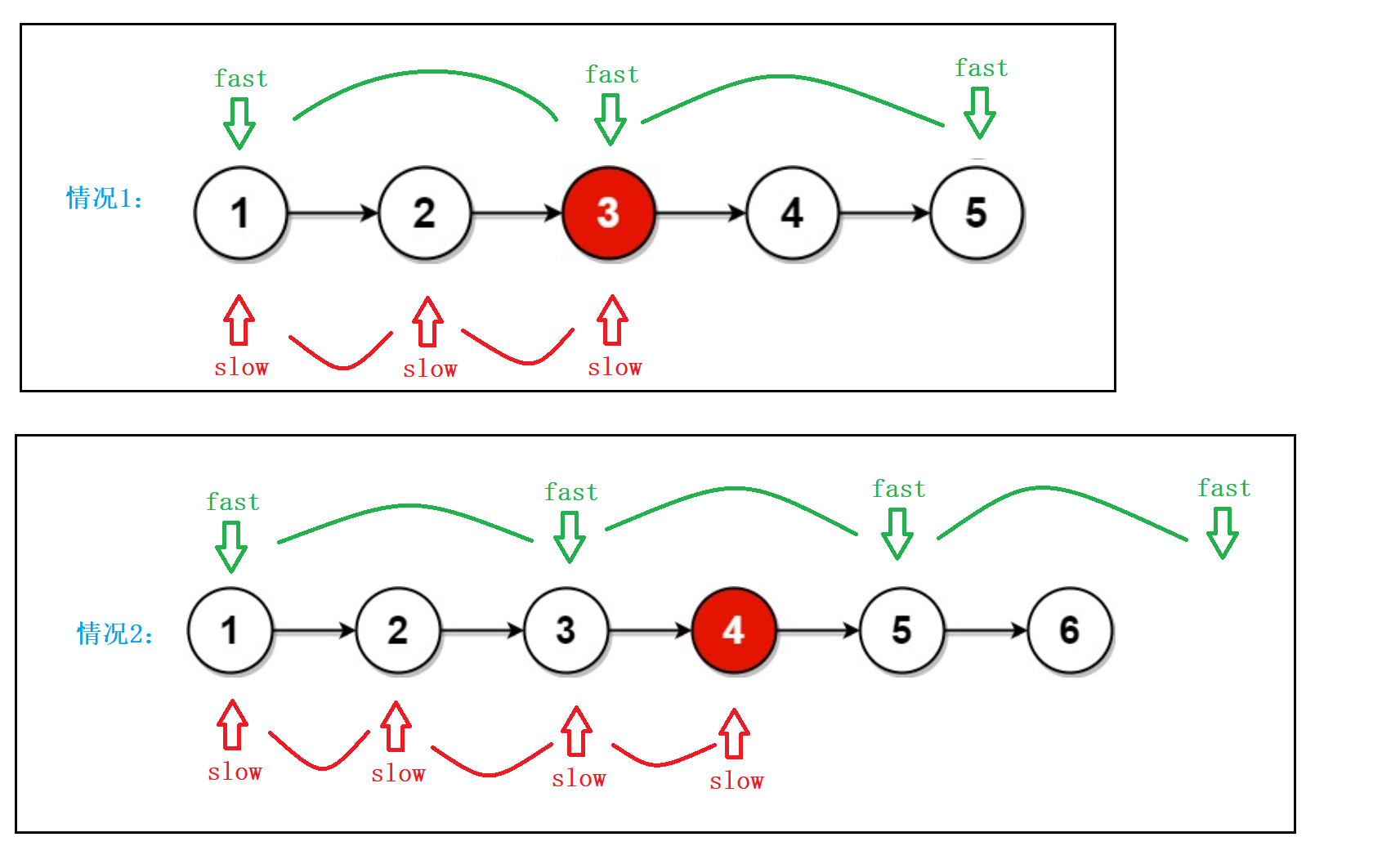
struct ListNode* middleNode(struct ListNode* head) { struct ListNode* slow = head; struct ListNode* fast = head; while(fast && fast->next) { slow = slow->next; fast = fast->next->next; } return slow; }4.反转单链表
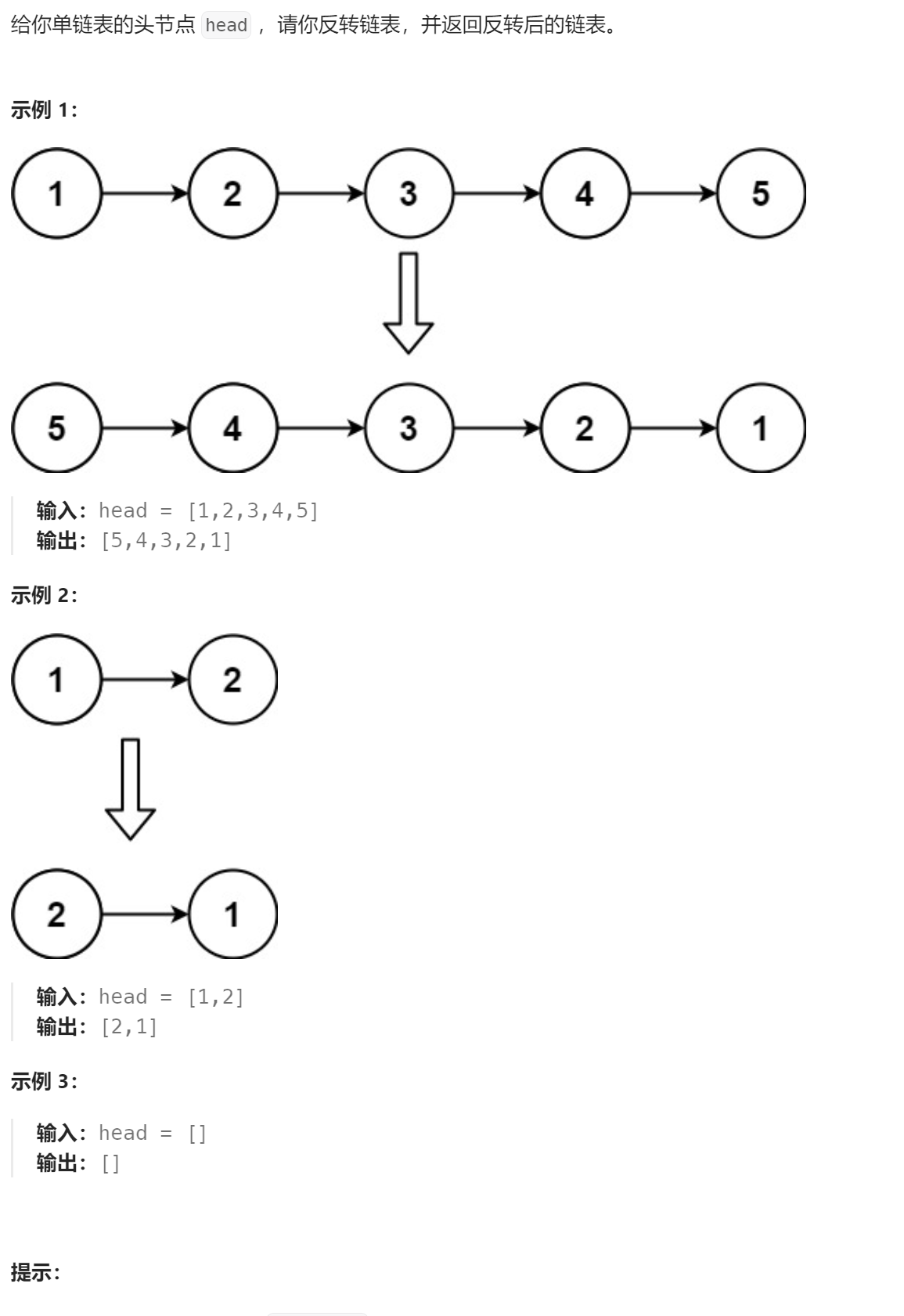
方法1
定义一个新的头节点,然后遍历链表,采取头插
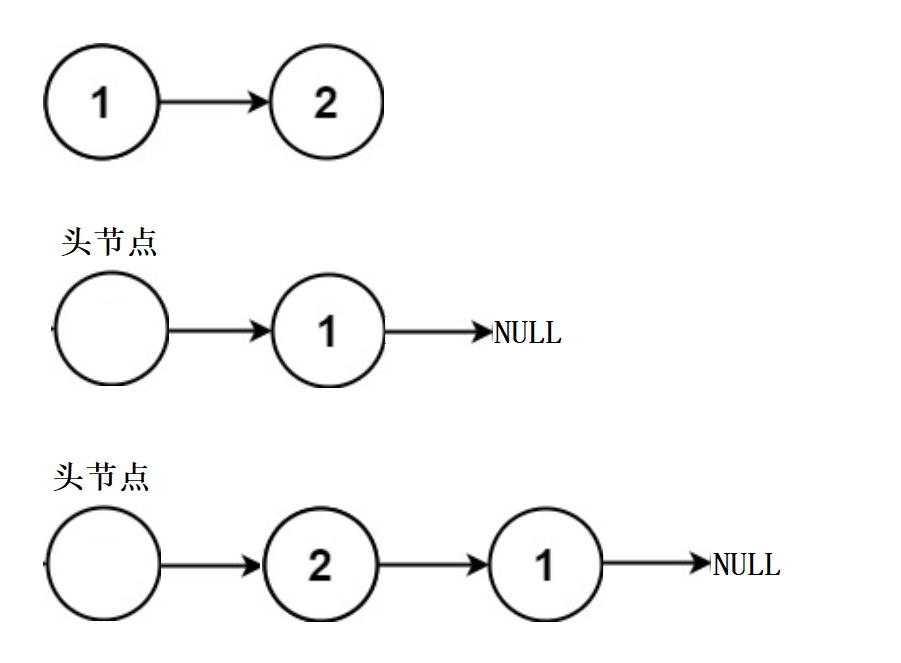
struct ListNode* reverseList(struct ListNode* head) { struct ListNode* newHead = (struct ListNode*)malloc(sizeof(struct ListNode)); newHead->val = -1; newHead->next = NULL; while(head) { //先记录后继节点 struct ListNode* next = head->next; //头插 head->next = newHead->next; newHead->next = head; //节点后移 head = next; } return newHead->next; }方法2
原地直接反转
- 先记录当前节点的后继节点,以便节点后移
- 当前节点指向其前驱节点
- 前驱节点后移
- 当前节点后移
- prev即为反转后新的头
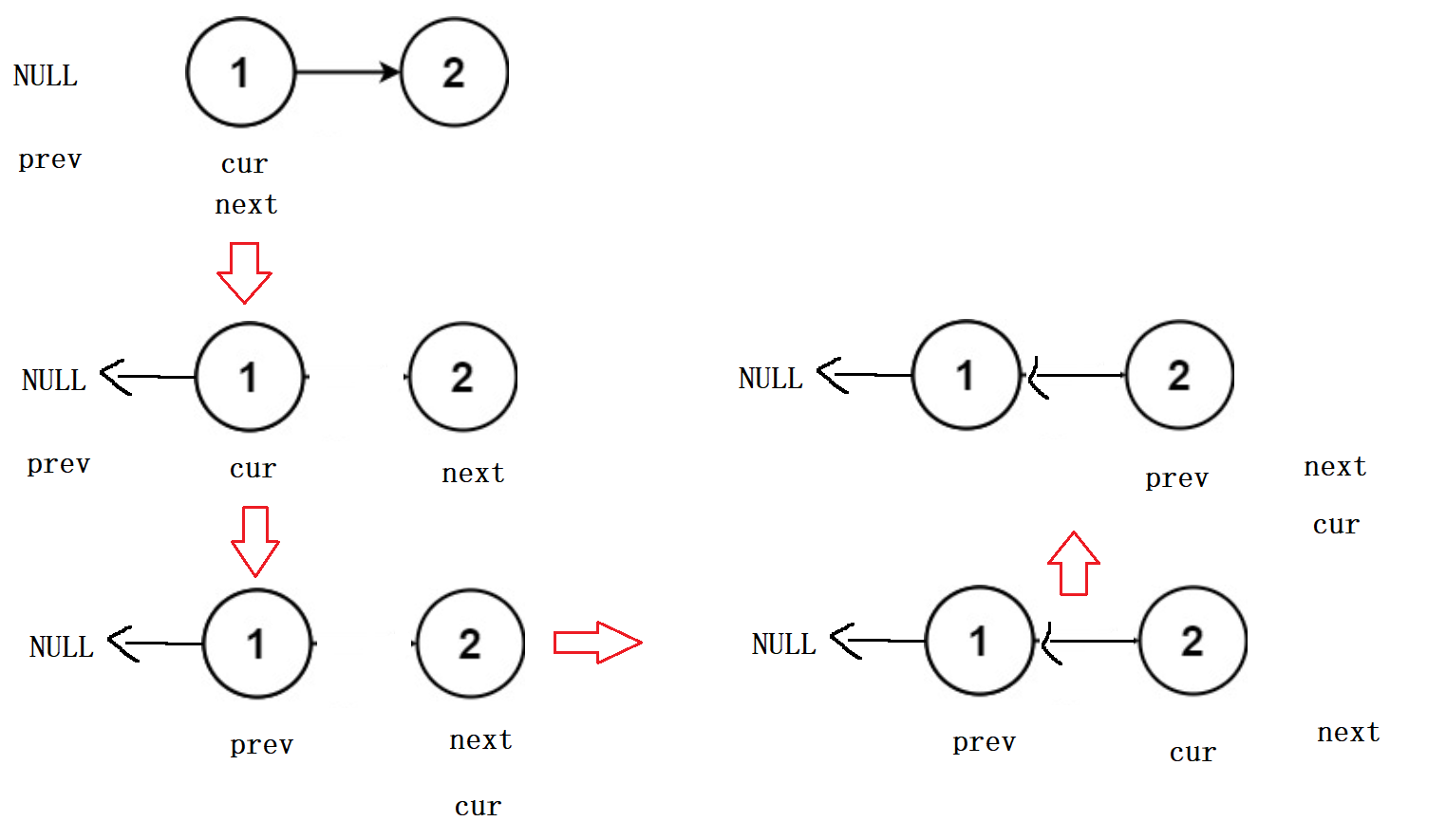
struct ListNode* reverseList(struct ListNode* head) { struct ListNode* next = NULL; struct ListNode* prev = NULL; struct ListNode* cur = head; while(cur) { next = cur->next; cur->next = prev; prev = cur; cur = next; } return prev; }5.分割链表
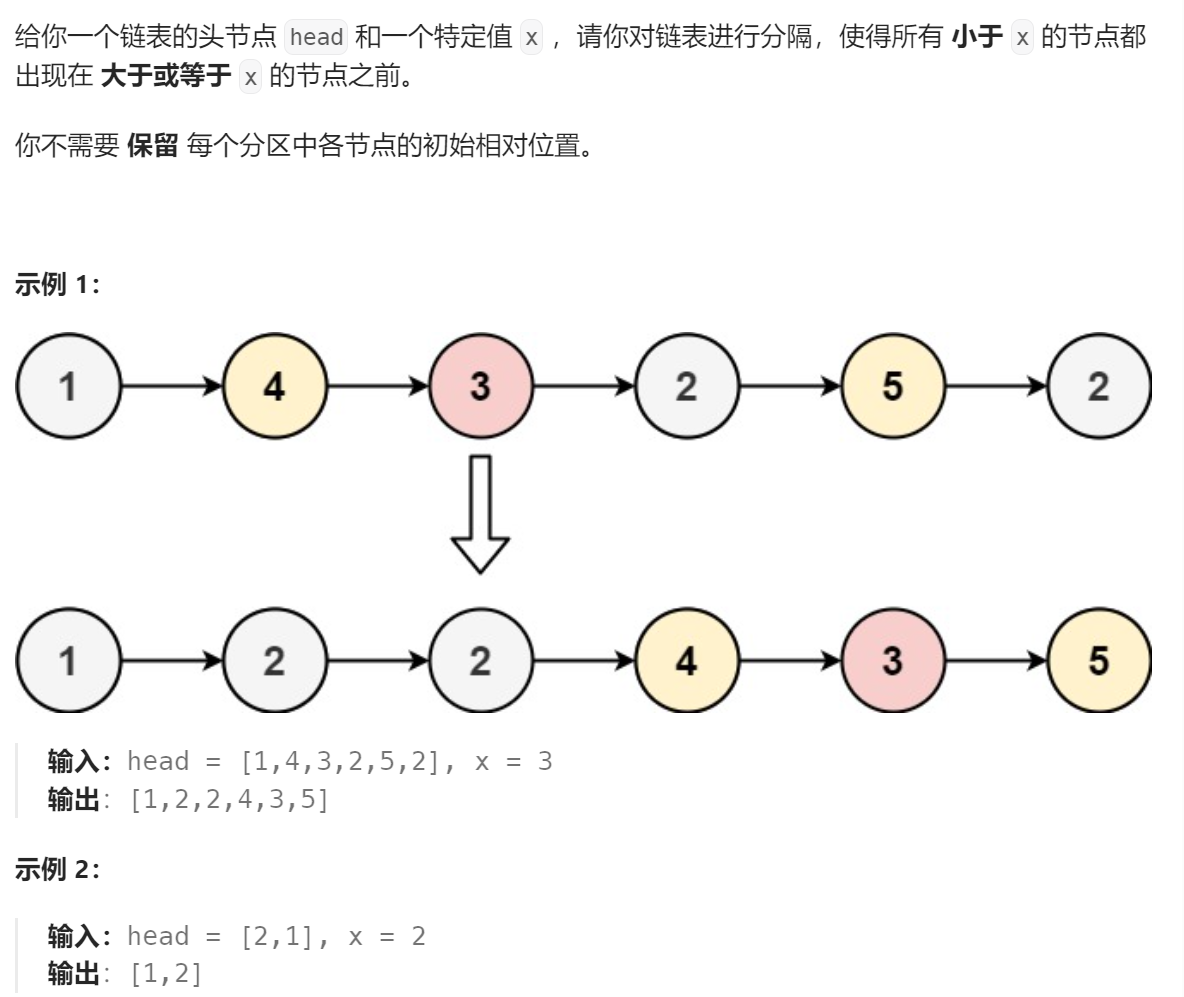
思路:
- 给定两个新的链表,一个放小于X的元素,一个放大于X的元素
- 元素尾插至新链表
- 将两个新链表相连

struct ListNode* partition(struct ListNode* head, int x){ struct ListNode* minHead = (struct ListNode*)malloc(sizeof(struct ListNode)); struct ListNode* maxHead = (struct ListNode*)malloc(sizeof(struct ListNode)); struct ListNode* minTail = minHead; struct ListNode* maxTail = maxHead; struct ListNode* cur = head; while(cur) { if(cur->val next = cur; minTail = minTail->next; } else { maxTail->next = cur; maxTail = maxTail->next; } cur = cur->next; } //防止成环 maxTail->next = NULL; minTail->next = maxHead->next; struct ListNode* ret = minHead->next; free(minHead); free(maxHead); return ret; }6.链表中的倒数第k个节点

方法1:
思路:倒数第k就是正数第n-k+1个(n为链表长度)
特殊情况:
- k应该小于链表长度
- k不能为0
- 链表不能为空
struct ListNode* FindKthToTail(struct ListNode* pListHead, int k) { struct ListNode* cur = pListHead; int len = 0; //求链表的长度 while (cur) { len++; cur = cur->next; } //特殊情况判断 //1.k不能大于链表长度 //2.k不能为0 //3.链表不为空 if (k > len || k == 0 || pListHead == NULL) { return NULL; } //倒数第k个就是正数第n-k+1个 int n = 1; len = len - k + 1; cur = pListHead; while (n != len) { n++; cur = cur->next; } return cur; }方法2:
快慢指针:快指针先走k步,然后快慢一起走

struct ListNode* FindKthToTail(struct ListNode* pListHead, int k ) { struct ListNode* fast = pListHead; struct ListNode* slow = pListHead; //快指针先走k步 while(k--) { //fast不能走出链表(k符合) if(fast) { fast = fast->next; } else { return NULL; } } while(fast) { slow = slow->next; fast = fast->next; } return slow; }7.环形链表的约瑟夫问题

解题思路:
- 构建环形链表,给每个节点编号
- 逢m就删除节点,再从新报数
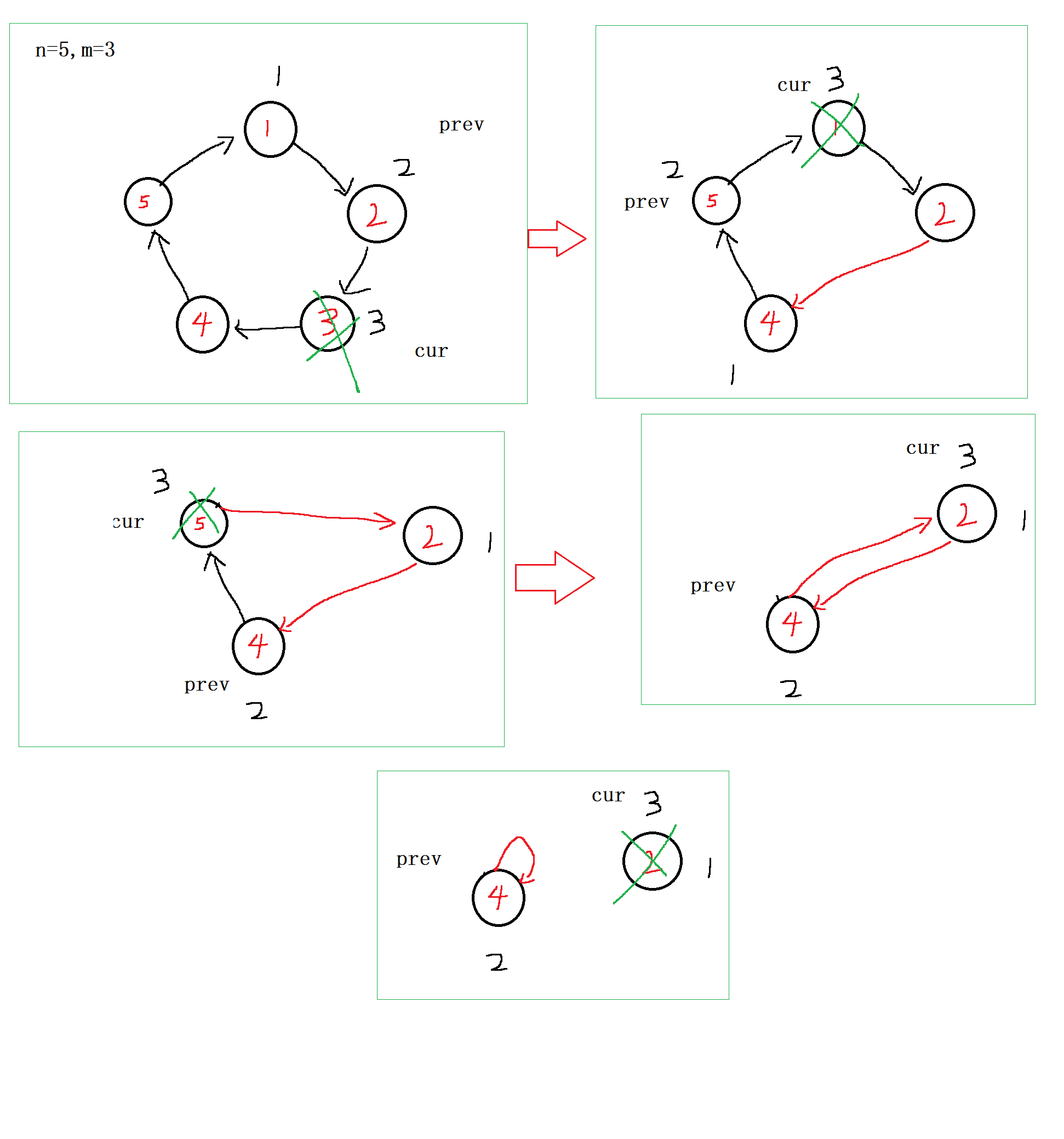
typedef struct ListNode ListNode; //创建节点 ListNode* CreatNode(int x) { ListNode* newnode = (ListNode*)malloc(sizeof(ListNode)); newnode->val = x; newnode->next = NULL; return newnode; } //构建环 ListNode* CreatCircle(int n) { ListNode* head = CreatNode(1); ListNode* tail = head; //连续创建节点 for(int i=2; i ListNode* newnode = CreatNode(i); //连接节点 tail-next = newnode; tail = tail->next; } //成环 tail->next = head; //返回尾节点的目的是:防止第一个元素就是要删除的元素 return tail; } int ysf(int n, int m ) { ListNode* prev = CreatCircle(n); ListNode* cur = prev->next; int count = 1; //有多个节点继续报数,直到剩下一个节点 while(cur->next != cur) { //逢m就删除 if(count == m) { prev->next = cur->next; free(cur); cur = prev->next; count = 1; } else { prev = cur; cur = cur->next; count++; } } return cur->val; }8.链表的回文结构
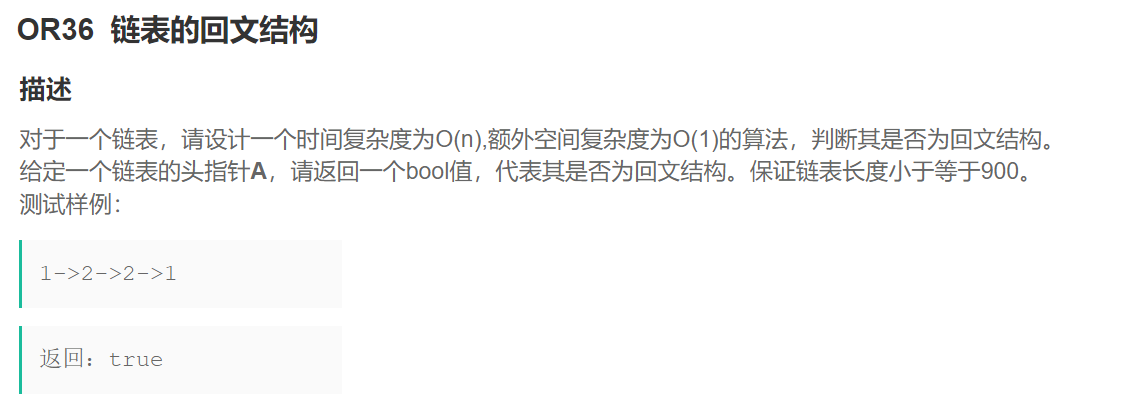
思路:从链表的中间节点逆置后半段,然后比较前半段与后半段是否相等。
- 快慢指针找链表的中间节点
- 从中间节点反转单链表
- 节点比较
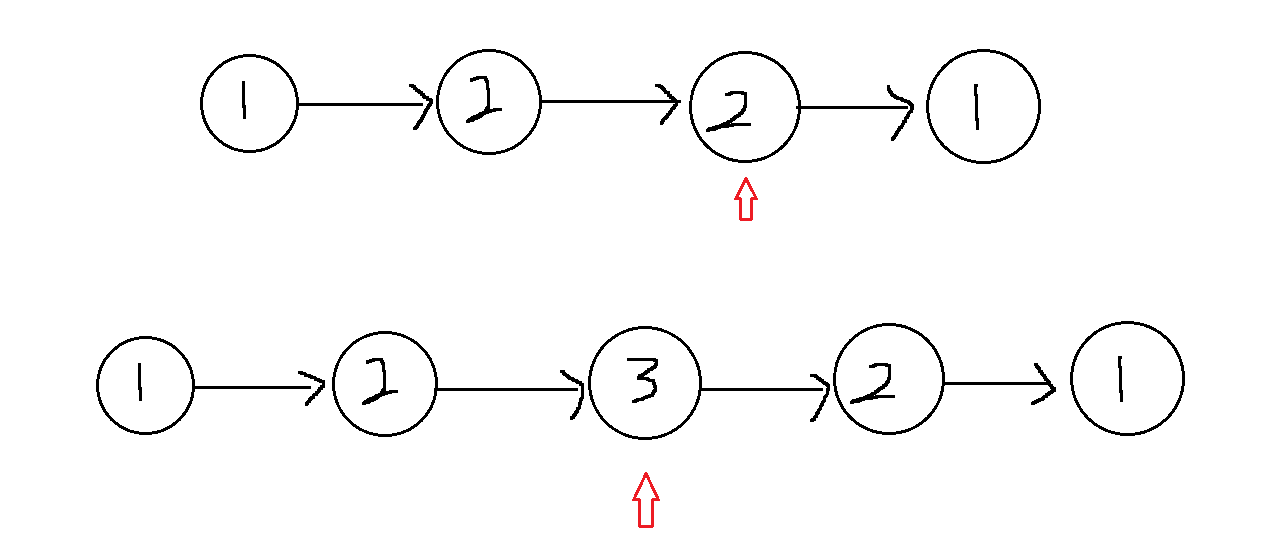
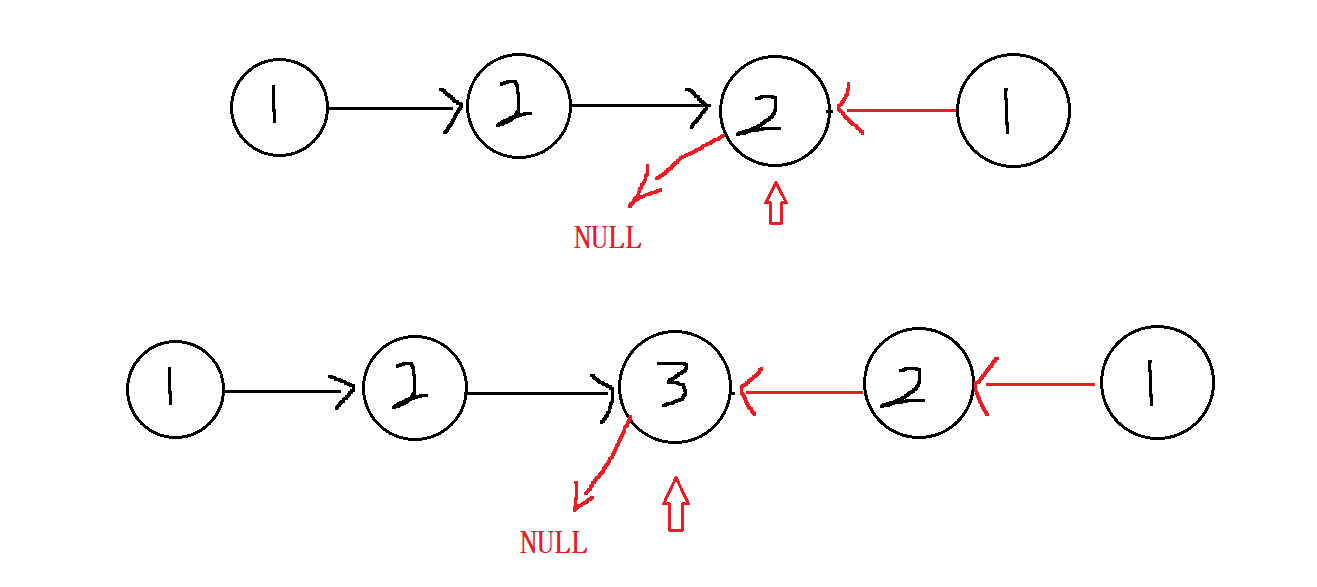
//找中间节点 ListNode* FindMid(ListNode* A) { ListNode* fast = A; ListNode* slow = A; while(fast && fast->next) { fast = fast->next->next; slow = slow->next; } return slow; } //反转 ListNode* Reverse(ListNode* mid) { ListNode* cur = mid; ListNode* prev = NULL; ListNode* next = NULL; while(cur) { next = cur->next; cur->next = prev; prev = cur; cur = next; } return prev; } bool chkPalindrome(ListNode* A) { ListNode* mid = FindMid(A); ListNode* midhead = Reverse(mid); while(midhead) { if(A->val == midhead->val) { A = A->next; midhead = midhead->next; } else { return false; } } return true; }9.相交链表
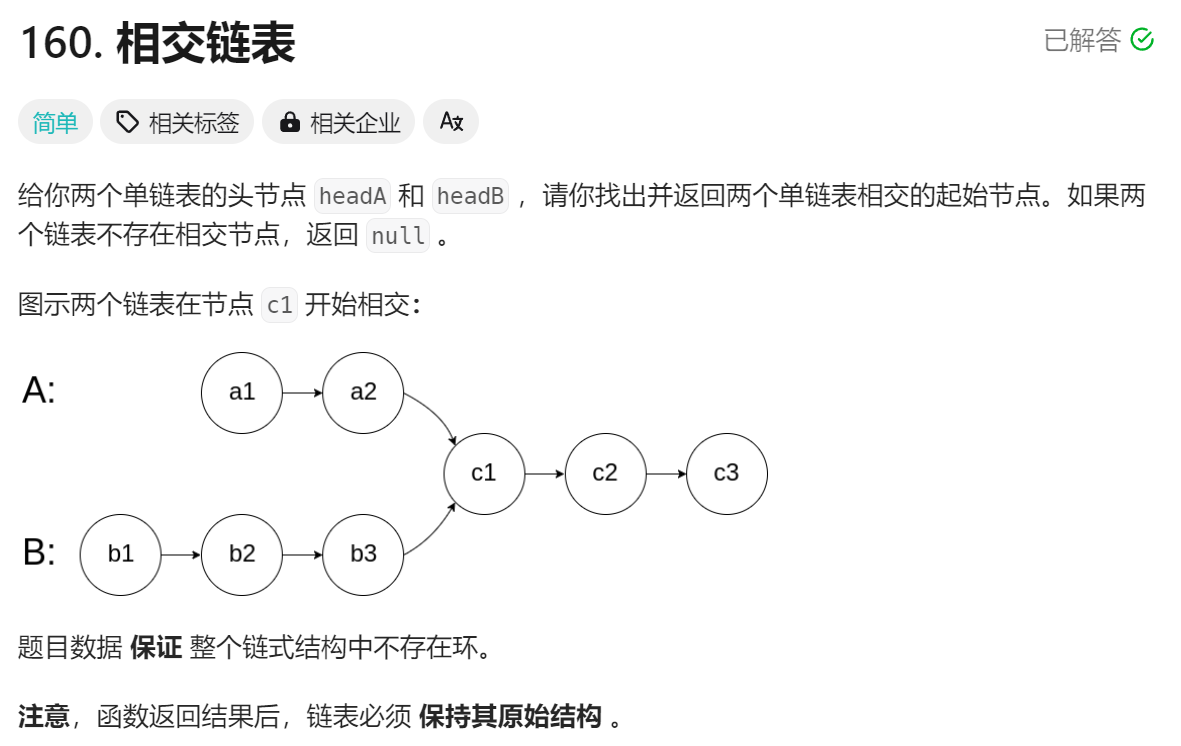
方法1
将链表A中的每一个节点与链表B中的每一个节点比较,看是否相等。
- 若相等,则返回相等的节点
- 若所有节点都不相等,则链表不相交。
struct ListNode *getIntersectionNode(struct ListNode *headA, struct ListNode *headB) { struct ListNode* curA = headA; struct ListNode* curB = headB; while(curA) { curB = headB; while(curB) { //若节点相等,直接返回相等节点 if(curA == curB) { return curA; } curB = curB->next; } curA = curA->next; } //A中每一个节点都与B比较完毕,仍无交点 return NULL; }方法2:
分别计算两链表长度,长的先走长度差步,然后再一起走,判断是否相等。
- 再求链表长度的同时,若两链表的最后一个节点相等,则二者一定相交
struct ListNode* getIntersectionNode(struct ListNode *headA, struct ListNode *headB) { struct ListNode* curA = headA; struct ListNode* curB = headB; int lenA = 0; int lenB = 0; //先计算链表各自的长度,都少计算一个 while(curA->next) { lenA++; curA = curA->next; } while(curB->next) { lenB++; curB = curB->next; } //若不相交,直接返回空 if(curA != curB) { return NULL; } //算长度差 int gap = abs(lenA - lenB); struct ListNode* longList = headA; struct ListNode* shortList = headB; if(lenA next; } //同时走,找交点 while(longList && shortList) { if(longList == shortList) { return shortList; } longList = longList->next; shortList = shortList->next; } return NULL; }10.环形链表
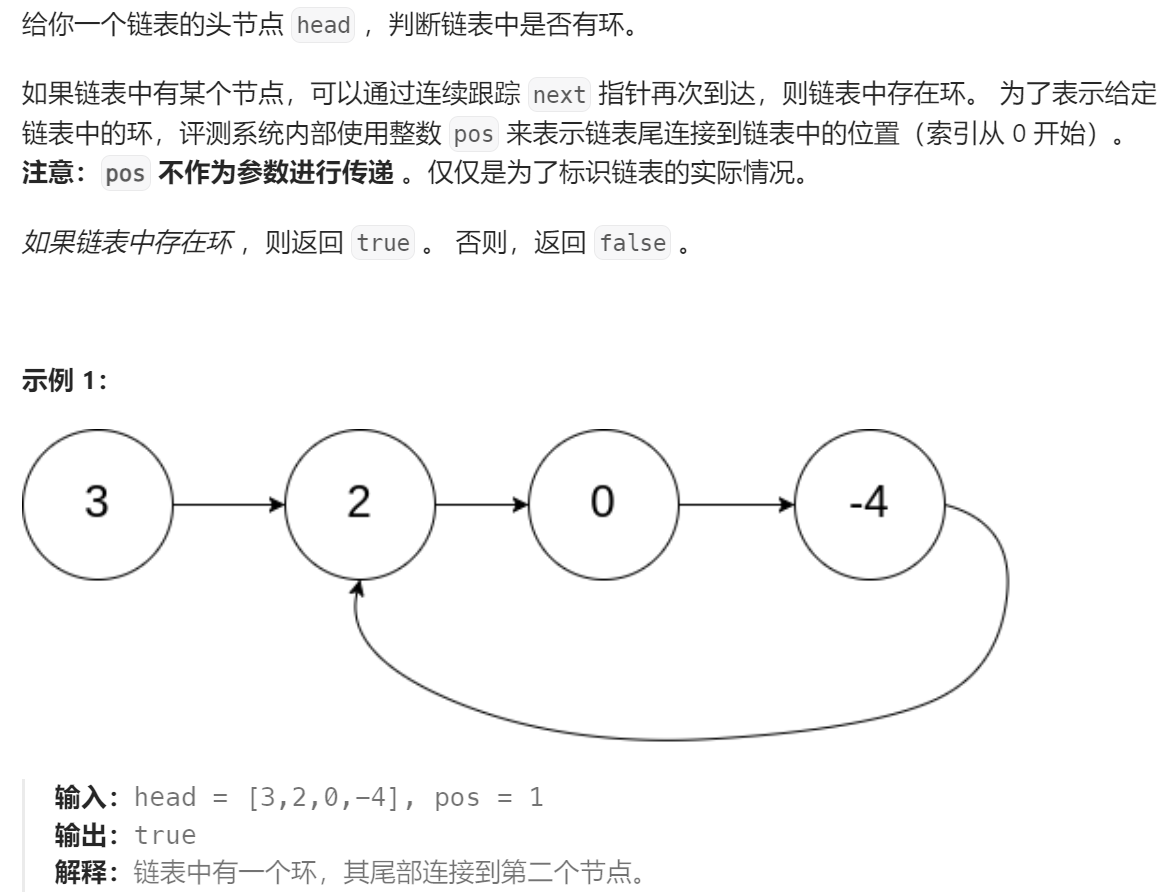
思路:快慢指针。
- 一个指针一次走一步,一个指针一次走两步
- 若快指针走到了空,则不带环
- 若快指针与慢指针相遇,则带环
bool hasCycle(struct ListNode *head) { struct ListNode * fast = head; struct ListNode * slow = head; while(fast && fast->next) { slow = slow->next; fast = fast->next->next; if(slow == fast) { return true; } } return false; }为什么这样可以呢?
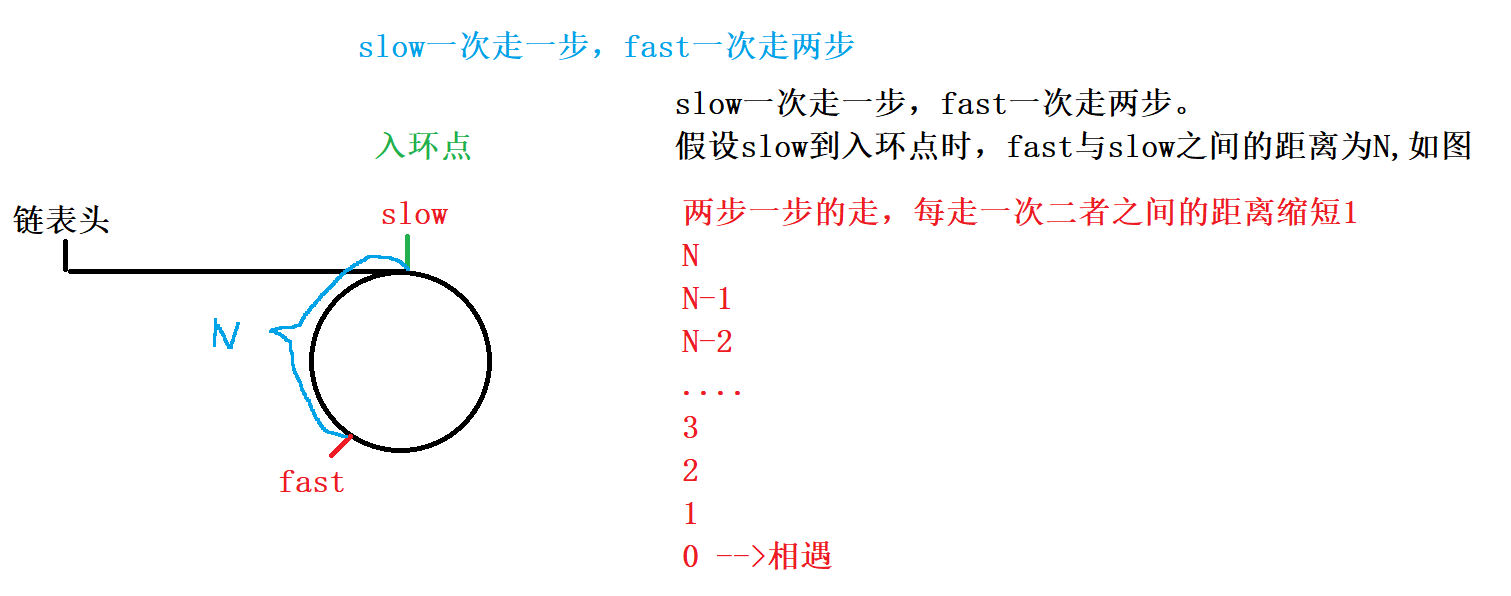
为什么不是一个走1步一个走3步?一个走1步一个走4步?一个走1步一个走6步?…
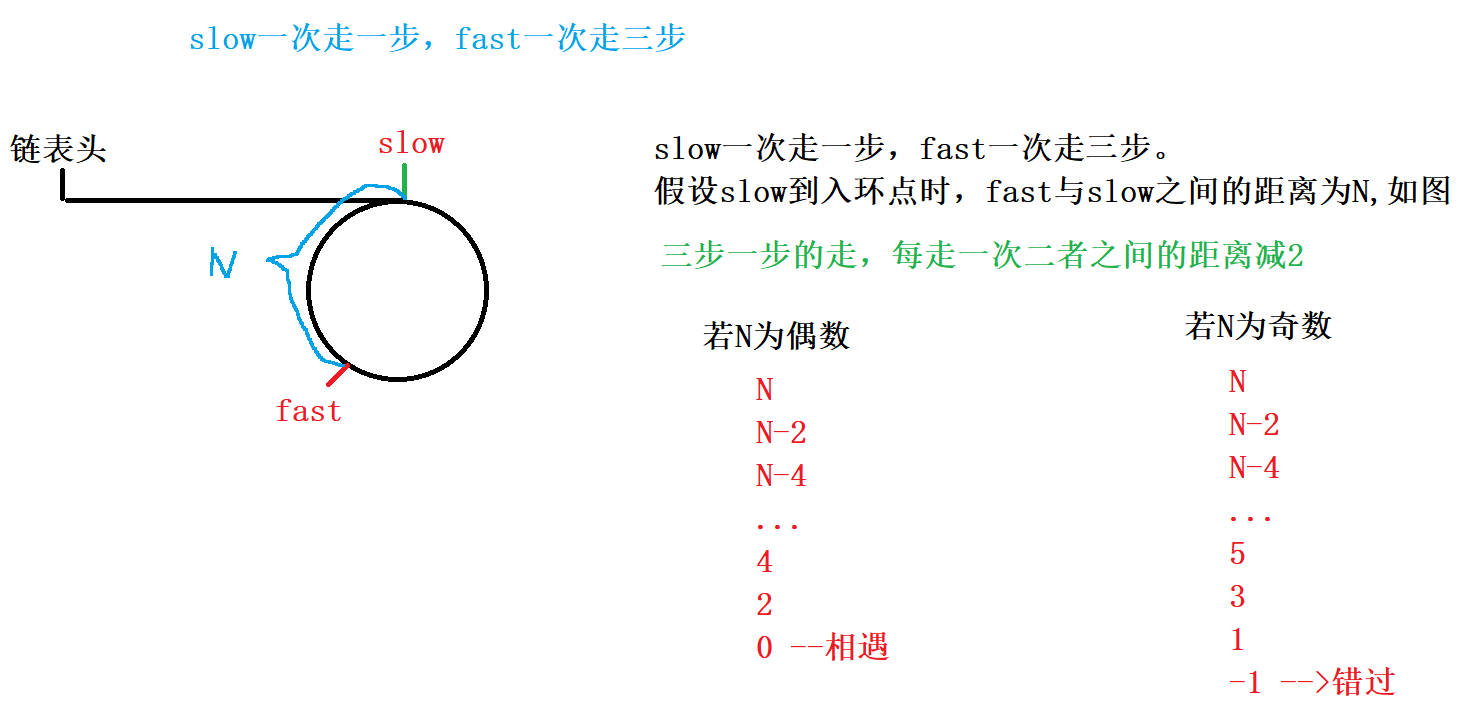
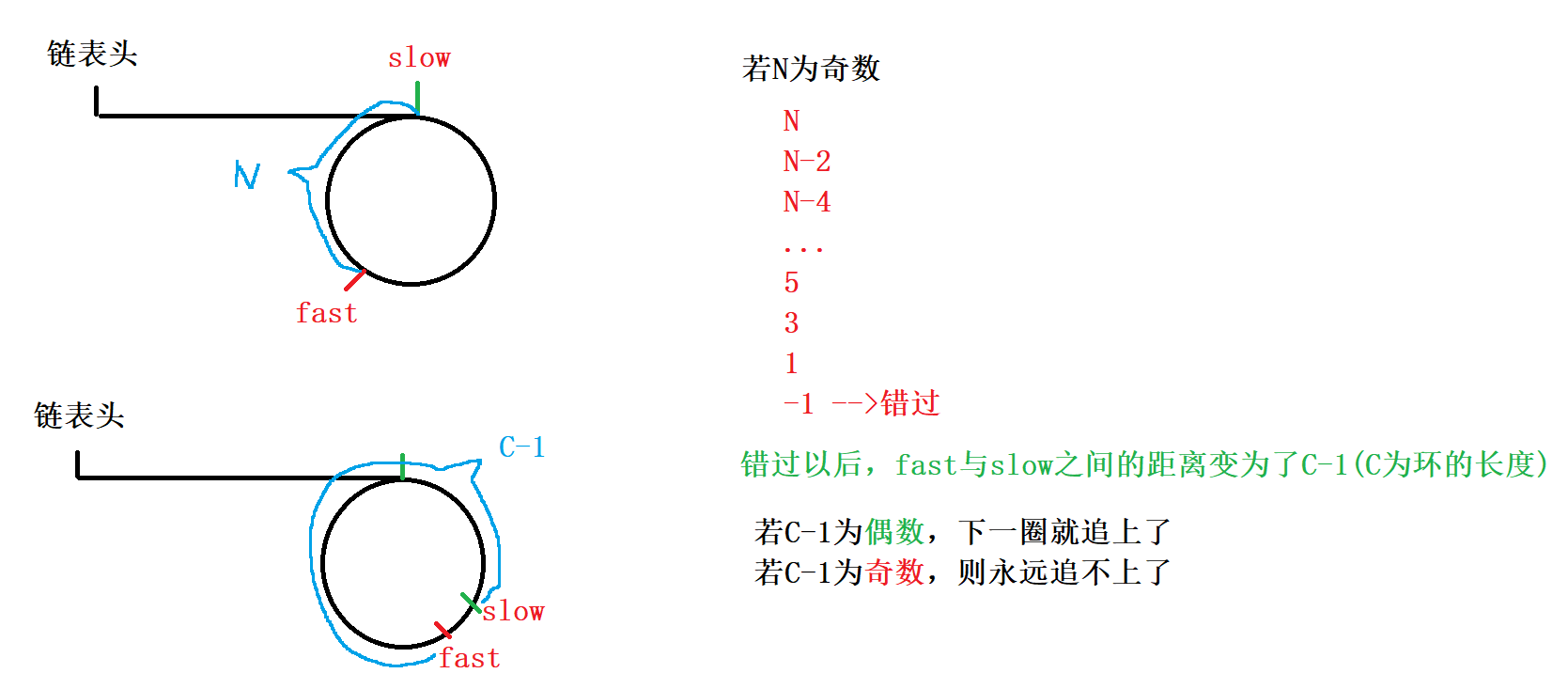
若N为奇数,C-1也为奇数则永远追不上(存在这种情况吗?)
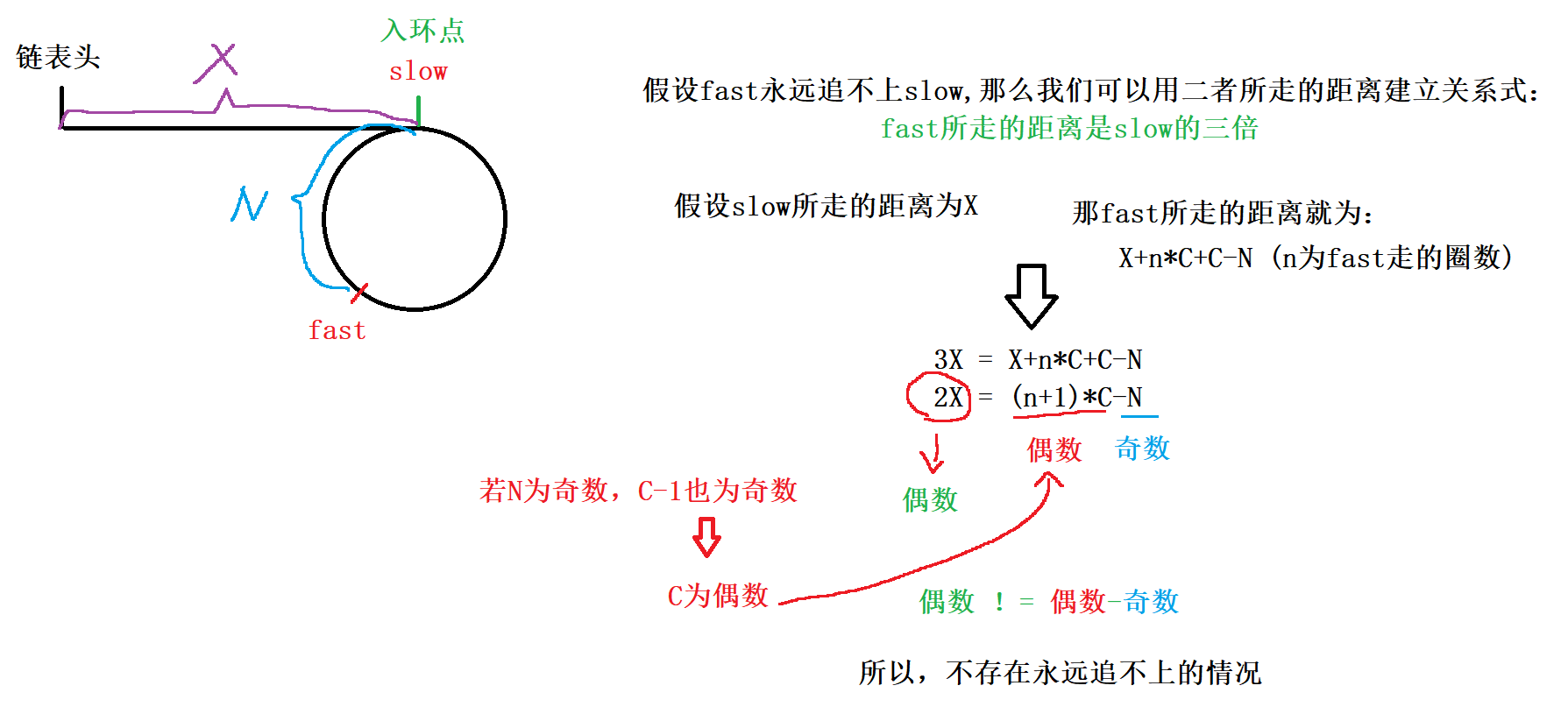
所以,一步两步走是最保险也是最简单的方式,不会错过。
11.环形链表Ⅱ
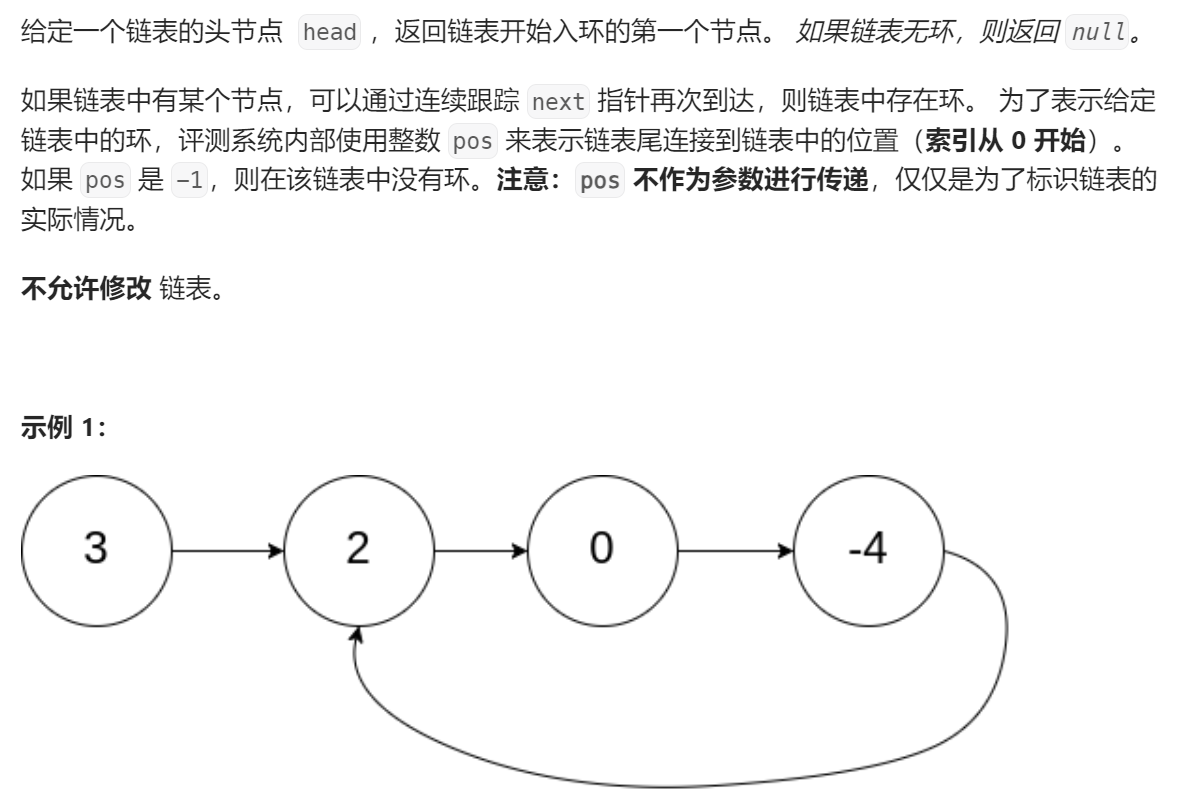
思路:快慢指针,找到二者的相遇点。再使用两指针,从相遇点和链表头开始走,二者相遇点就是入环点
struct ListNode *detectCycle(struct ListNode *head) { struct ListNode* slow = head; struct ListNode* fast = head; while(fast && fast->next) { slow = slow->next; fast = fast->next->next; if(slow == fast) { struct ListNode* meet = slow; while(meet != head) { meet = meet->next; head = head->next; } return meet; } } return NULL; }原理

12.随机链表的复制

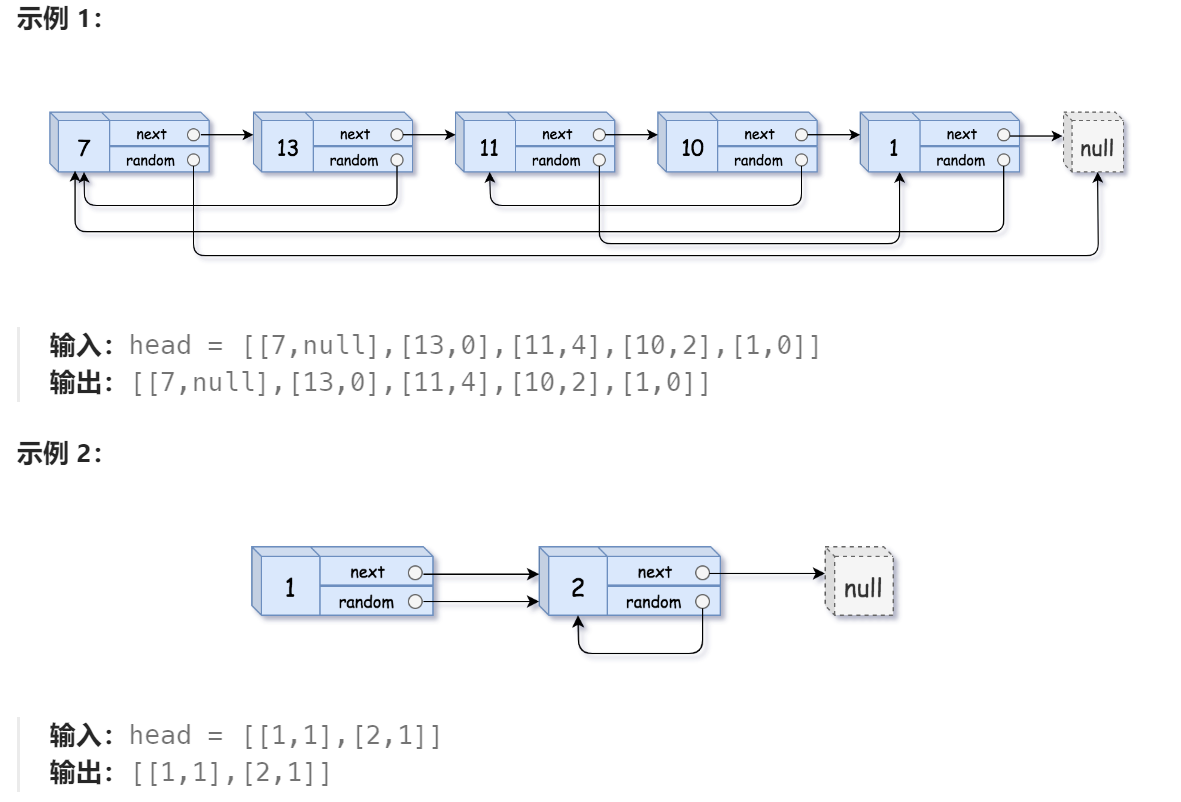
本题的难点在于random的指向难以找到
思路:
- 在原链表每个节点的后面尾插一个新的节点
- 根据原链表,找到新链表的random指向
- 将新链表的节点与原链表分离,恢复原链表
第一步:连接新节点

第二步:搞清random指向
新链表random就是原链表random的next!!!
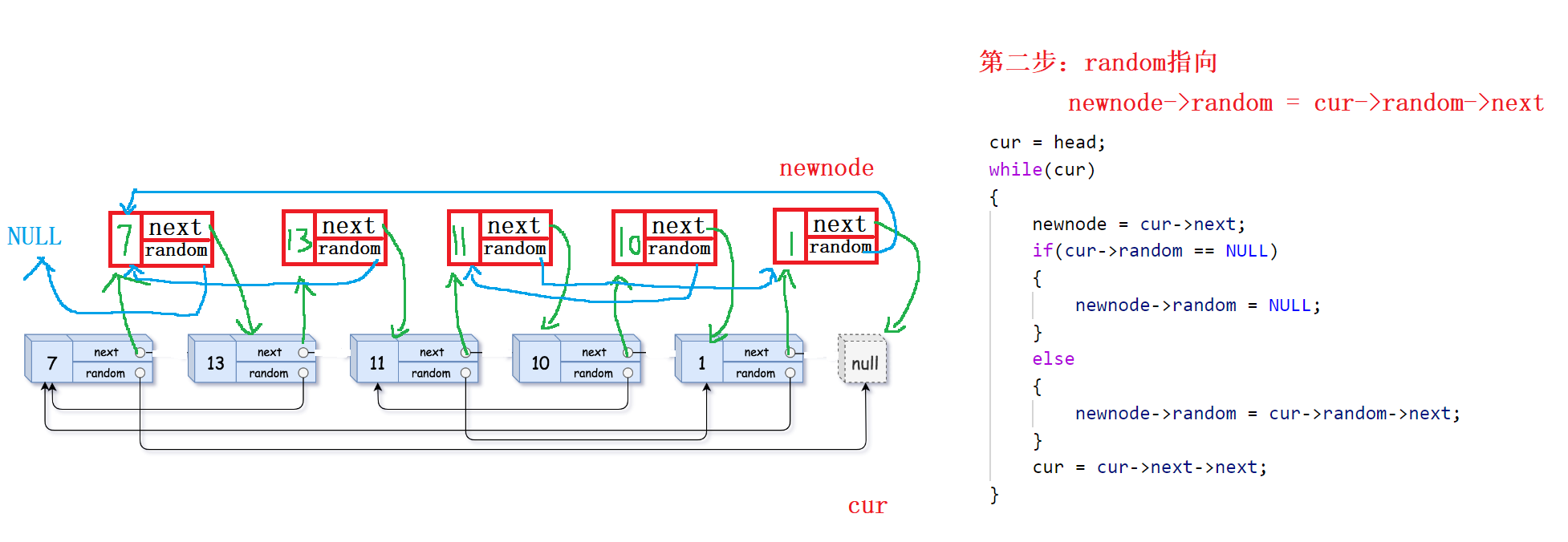
第三步:将新链表从原链表上摘下来
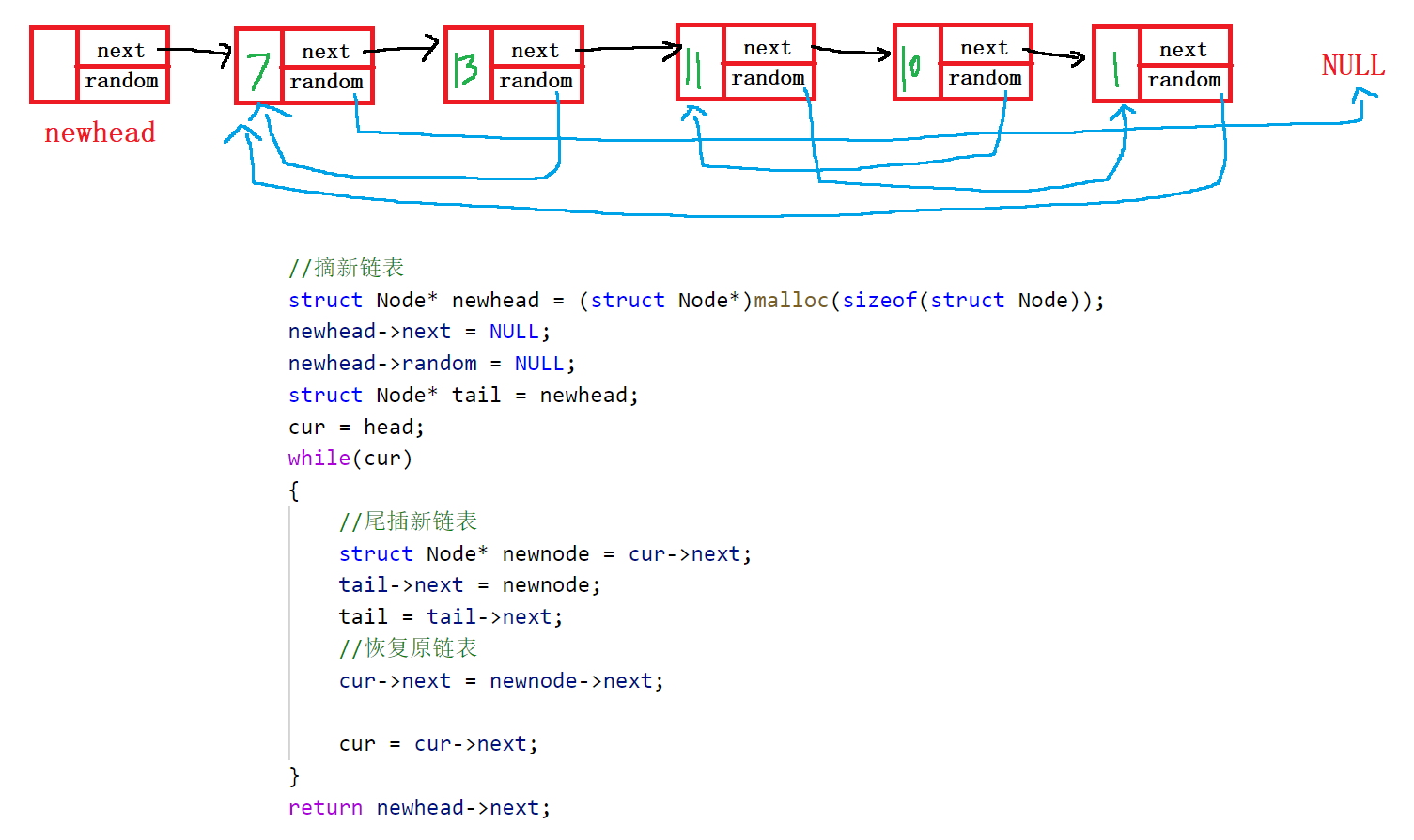
struct Node* copyRandomList(struct Node* head) { struct Node* cur = head; //插入新节点 while(cur) { struct Node* newnode = (struct Node*)malloc(sizeof(struct Node)); //连接新节点 newnode->val = cur->val; newnode->next = cur->next; cur->next = newnode; //原链表后移 cur = cur->next->next; } //random cur = head; while(cur) { struct Node* newnode = cur->next; if(cur->random == NULL) { newnode->random = NULL; } else { newnode->random = cur->random->next; } cur = cur->next->next; } //摘新链表 struct Node* newhead = (struct Node*)malloc(sizeof(struct Node)); newhead->next = NULL; newhead->random = NULL; struct Node* tail = newhead; cur = head; while(cur) { //尾插新链表 struct Node* newnode = cur->next; tail->next = newnode; tail = tail->next; //恢复原链表 cur->next = newnode->next; cur = cur->next; } return newhead->next; }
- 再求链表长度的同时,若两链表的最后一个节点相等,则二者一定相交


